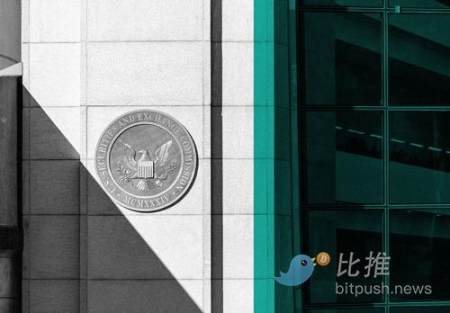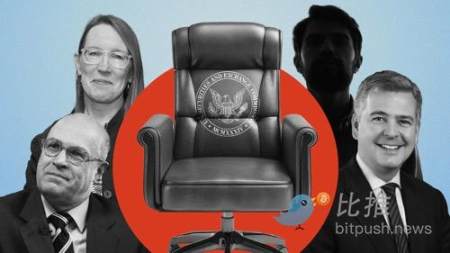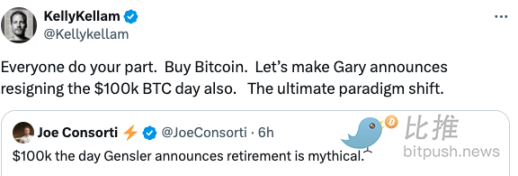Gensler chose to resign voluntarily, and Trump has yet to nominate a successor for the chairperson.
Written by: BitpushNews
The crypto industry is celebrating as the date for SEC Chairman Gary Gensler's "departure" is set – January 20, 2025, the same day as Trump's inauguration.
Gensler will not only resign from his leadership position but will also no longer serve as a commissioner. Following this announcement, BTC surged to $99,014.21 in a short time, with the $100,000 mark seemingly within reach.
In his statement, Gensler thanked President Joe Biden and his colleagues, stating that the SEC is "an incredible agency… it has been my honor in my lifetime to serve alongside ordinary Americans and ensure that our capital markets remain the best in the world."

Shortly after the news of Gensler's departure, Ian Katz, Managing Director at Capital Alpha Partners, commented: "The crypto industry has 'got what it wanted'; the next SEC chair will be friendlier than Gensler."
From Blockchain Professor to Crypto Villain
Gary Gensler, a graduate of the Wharton School at the University of Pennsylvania, has a strong academic background in the blockchain field.
Before joining the SEC, he served as a professor at the MIT Sloan School of Management and frequently expressed interest in blockchain technology in public forums.
While at MIT, Gensler taught a course on "Blockchain and Money," exploring the potential applications of blockchain in the financial sector.
In 2018, he assigned his students a task: to read the Bitcoin white paper.

MIT has made Gensler's course available as an open course, which can be viewed for free on YouTube.

However, after he took office as the Chairman of the U.S. Securities and Exchange Commission (SEC) on April 17, 2021, he became the "villain" of the crypto industry.
So where does the industry's "hatred" for Gensler come from?
Gensler has repeatedly emphasized that many cryptocurrency projects are suspected of violating securities laws.
After the collapse of FTX in 2022, Gensler led a crackdown across the industry, suing companies like Binance, Binance.US, Coinbase, Kraken, and Shapeshift, accusing these exchanges of being unregistered securities brokers and clearing agencies.
In 2023, the SEC's regulatory efforts in the crypto industry reached unprecedented levels. Data shows that 46 enforcement actions were initiated throughout the year, a 53% increase year-on-year. The total fines amounted to $2.89 billion, with $281 million settled that year.
According to the Blockchain Association, which represents nearly 100 industry participants like Grayscale and Paradigm, Gensler initiated over 100 lawsuits against the digital asset industry during his tenure at the SEC. As a result, association members spent approximately $429 million on litigation-related costs.

This hardline approach has strained Gensler's relationship with the cryptocurrency community. Many industry insiders believe that the SEC's regulation is overly strict and that its regulatory framework is not suitable for the emerging cryptocurrency sector.
However, Gensler has also done some good for crypto. In January of this year, the SEC approved an exchange-traded fund (ETF) tracking the spot price of Bitcoin, followed by the approval of an Ethereum ETF. With such products, investors can more easily purchase cryptocurrencies without taking on risks, opening a window for the widespread adoption of cryptocurrencies.
From Gensler's perspective, he is not entirely dismissing cryptocurrencies but hopes to bring traditional finance into the fold in a compliant manner. After the approval of the ETFs, Wall Street financial giants like Goldman Sachs, BlackRock, and Franklin Templeton rushed into the crypto market to share the pie, further accelerating the integration of crypto into the mainstream financial system.
Gensler stated in an interview that crypto could benefit economic development, but only if they are subject to strong regulation. He cited the example of the automotive industry, which became popular only after the introduction of traffic lights and speed limits.
Trump's Victory, Gensler's Successor Undecided
Trump, who once called Bitcoin a "scam," has fully embraced cryptocurrency in this campaign, promising to turn the U.S. into the "global cryptocurrency capital," while launching his family's cryptocurrency business and proclaiming that he would remove Gensler on his first day in office.

Gensler chose to resign voluntarily, and Trump has yet to nominate a successor for the chairperson. Current candidates include former SEC member and current private practice attorney Teresa Goody Guillén, Robinhood's Chief Legal Officer Dan Gallagher, former Acting Comptroller of the Currency Brian Brooks (who briefly managed Binance.US), and former SEC commissioner/Token Alliance co-chair Paul Atkins, among others.

The new SEC chair may continue some of Gensler's regulatory policies but may also introduce a new regulatory framework.
In Gensler's absence, the commission will consist of two members from each party, and before the Republicans hold a majority on the commission, significant policy shifts or enforcement decisions may take longer to implement.
Major decisions by the SEC (such as dismissals, settlements, and enforcement actions) are not solely determined by the chairperson. For example, decisions involving litigation, even under close scrutiny from the chair's office, ultimately require the agreement of a majority of commission members, and dismissing existing cases requires a commission vote, with Republicans temporarily lacking a majority on the SEC.
According to Tom Krysa, a former SEC enforcement attorney and current partner at Foley & Lardner, at the federal appellate court level, the withdrawal of cases is overseen by the agency's General Counsel. While that office may seek extensions under close scrutiny from the chair's office, completely withdrawing an appeal requires the approval of a majority of commission members.
Krysa believes that if Trump nominates Mark Uyeda as the acting chair of the SEC, the political landscape of the commission will change, but there will not be an immediate "180-degree turnaround." Even if the terms of Democratic commissioners are about to end, they still have the ability to influence policy direction in the short term.
As for the SEC's handling of pending cases, this part may change relatively quickly. The new chair can influence the direction of these cases by adjusting internal enforcement strategies.
Trump has promised to appoint an SEC chair who supports the crypto industry, and how the new official will handle the agency's series of pending lawsuits against crypto companies/projects remains to be seen.

But one thing is certain: people in the industry are waiting for the arrival of $100,000/BTC.
免责声明:本文章仅代表作者个人观点,不代表本平台的立场和观点。本文章仅供信息分享,不构成对任何人的任何投资建议。用户与作者之间的任何争议,与本平台无关。如网页中刊载的文章或图片涉及侵权,请提供相关的权利证明和身份证明发送邮件到support@aicoin.com,本平台相关工作人员将会进行核查。




